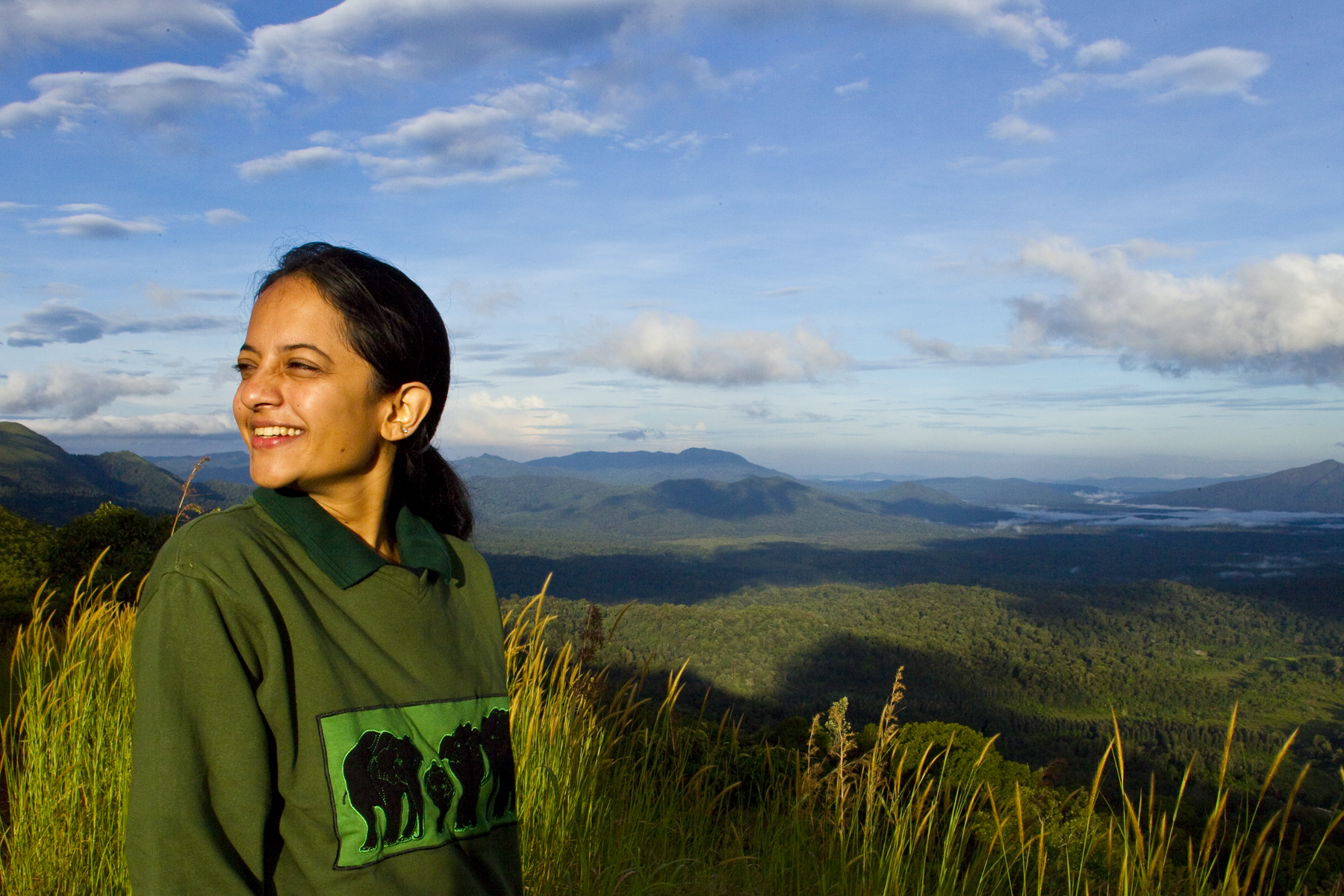Women of Discovery: Q&A With Krithi Karanth
On April 23, WINGS WorldQuest will induct four new Fellows during our 2019 Women of Discovery Awards in New York City. We will share insight from each of awardee in a special Q&A series. Our first Q&A is with Krithi Karanth, PhD, the Chief Conservation Scientist at the Centre for Wildlife Studies. She will receive the 2019 Women of Discovery Conservation Award.
Photo courtesy Krithi Karanth
WINGS WORLDQUEST: Tell us your story. How did you get involved in science and in your field specifically?
Krithi Karanth: I was very lucky as both my parents are scientists. My dad is a wildlife biologist, my mother is a speech pathologist; so I grew up surrounded by these two people who had PhDs and cared very much for science. When I was 2 years old, my dad took me to many parks and I gained firsthand exposure to wildlife science. I got to observe him going through the scientific process of asking questions and collecting data, and the importance of analyzing it. These lessons were taught to me in an informal manner and it mingled with my childhood. I grew up knowing that I wanted a PhD, I just needed to figure out what it was going to be in.
WWQ: What is something you would like people to understand about your field and your work?
KK: A lot of people in ‘pure science’, (i.e., chemistry, physics, and biology) look down upon conservation science. The reality is that conservation is a very applied field, and it doesn’t deserve the skepticism or disdain it currently receives. Personally, it is because it is an applied field that I derive great joy from it. You can see it have an impact in the real world, and with people and wildlife. I am very proud to be an applied scientist. I think we should stop making this distinction between pure theoretical sciences and applied sciences.
WWQ: What are the greatest barriers to having more women work in science?
KK: When you look at the field of conservation today, there is an equal intake of men and women in the undergrad and masters level. If you follow the natural line of academic progression, there are equal numbers of men and women who want to pursue their PhDs. A barrier I have personally seen and watched a lot of friends and colleagues experience is that once women enter their childbearing years, it gets difficult for them to continue with a post-doc and gain a faculty position.
I think working in an NGO space allows for a bit of flexibility, however, there is a lot of pressure on women, particularly when a lot of fieldwork is involved. You have to face the pressure of making a choice to not have children, or delay having a child. The balance required is quite difficult to achieve. I’ve seen some women manage to juggle this, but I have also seen a lot of women quit in frustration.
WWQ: What gets you up in the morning?
KK: When I look at how I’ve grown through my career, the first decade was focused on being a good scientist, asking great questions, answering them using the most appropriate methods and publishing the results in the best possible journal.
In the second decade of my career, the emphasis has definitely changed from generating knowledge to actually having an impact. Now, I am focused on using science to create changes in policy and law through collaborations and having real-world impact based on science. This is what keeps me going, it is projects like Wild Seve and Wild Shaale.
WWQ: What's your next challenge?
KK: For me, there is constant frustration caused by vying and wondering if you’re doing enough and has the science led to impact?
Can these programs be scaled to reach many more places and people?
WWQ: Describe yourself in three words.
Passionate. Creative. Collaborative.

